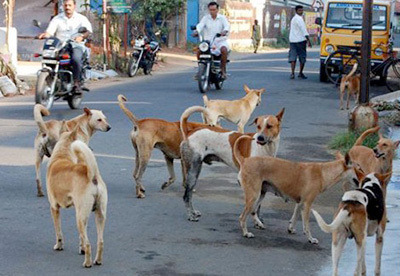Introduction
The fine line between animal welfare concerns and public safety has emerged as a critical issue requiring the intervention of the judiciary in urban governance. The Supreme Court’s recent directive addressing the menace of the stray dog population in Delhi reflects urgent needs for systematic intervention to address the rising public safety concerns while ensuring humane treatment of the animals.
Background
This case emerged from multiple petitions filed by the Delhi residents and civic organisations calling attention to the escalating incidents of stray dog attacks and the failure of the municipal authorities of the city to implement effective population control measures. The petitioners here contended that the flourishing increase in the number of the stray dog population across Delhi City has created a public health emergency, with various cases reported of dog bites, rabies transmission and aggressive behaviour of these dogs in a way endangering the citizens, particularly the children and the elderly.
The main issue for consideration before the Supreme Court was whether the municipal corporation had the constitutional obligation to relocate the stray dogs immediately to designated shelters, and the extent of intervention required by the judiciary to ensure public safety. The petitioner in this case contended that the Prevention of Cruelty to Animals Act 1960 and the Animal Birth Control (Dogs) Rules 2001 have immensely failed to create or provide for adequate protection to citizens from the aggressive attack of stray dogs roaming in public spaces.
The Delhi Municipal Corporation and Animal Welfare Organisations went against the mass relocation order, citing that such a measure would violate the existing and established animal welfare protocols and also contended that the sterilisation programs provide for a more humane and effective long-term solution to population control.
Key Points
-
- Public Safety as a Constitutional Obligation: The Court in this case emphasised that the municipal authorities have the constitutional obligation or duty under Article 21 to protect the citizens’ right to life and personal security, which also included the protection from dangerous animals in public spaces.
- Mandate of Immediate Implementation: The Supreme Court has directed all three municipal corporations of Delhi to establish sufficient shelter facilities. Justice JB Pardiwala said that dog shelters should be set up to accommodate around 5000 stray dogs with adequate personnel deployed to sterilise and vaccinate the stray dogs. The Court ordered the complete relocation of the stray dogs within 60 days of this judgment and also asked to submit a weekly report showing the progress of the relocation process.
- Penalty for Non-Compliance: The bench has also warned that any individual or organisation, or authority who are making a hurdle in the relocation process would face contempt of court proceedings and potential criminal charges under relevant provisions of the Bhartiya Nyaya Sanhita, 2023.
Recent Developments
The Supreme Court has delivered a comprehensive verdict addressing the most pressing issue of the stray dog menace and the urgent need for systematic management and relocation of these stray dogs in the nation’s capital.
The Supreme Court, in its detailed analysis, has emphasised that while animal welfare is a constitutional concern under Article 51A(g), it cannot go above the fundamental right of the citizens to have the right to life and a safer public space. This analysis highlighted the increasing cases of dog bites in Delhi and the inadequacy of the existing programmes in controlling their aggressive behaviour. The Court noted that the current situation has created a crisis that requires immediate attention of the judiciary in order to prevent further harm caused to the citizens of the country.
The court also opined that the municipal corporation must establish and implement a transparent monitoring mechanism and should also ensure that relocated dogs receive proper veterinary care, adequate nutrition and humane treatment in these designated facilities.
Conclusion
In this situation regarding the relocation of stray dogs, the Supreme Court decision represents a significant judicial decision in the form of an attempt to balance the interests of both public safety and animal welfare. This judgment casts an unequivocal duty on the concerned municipal corporation of the city to control the population of stray animals and safeguard the inhabitants from possible injuries.
The implementation of this order is likely to influence similar cases across the nation, making this an important precedent for urban animal management policies. The Court’s waning in this regard, that imposing penal punishments on anyone who does not comply with the order demonstrates the seriousness with which the court has taken the issue in hand.
PRIME LEGAL is a full-service law firm that has won a National Award and has more than 20 years of experience in an array of sectors and practice areas. Prime Legal falls into the category of best law firm, best lawyer, best family lawyer, best divorce lawyer, best divorce law firm, best criminal lawyer, best criminal law firm, best consumer lawyer, best civil lawyer.
WRITTEN BY YANA S JACOB


